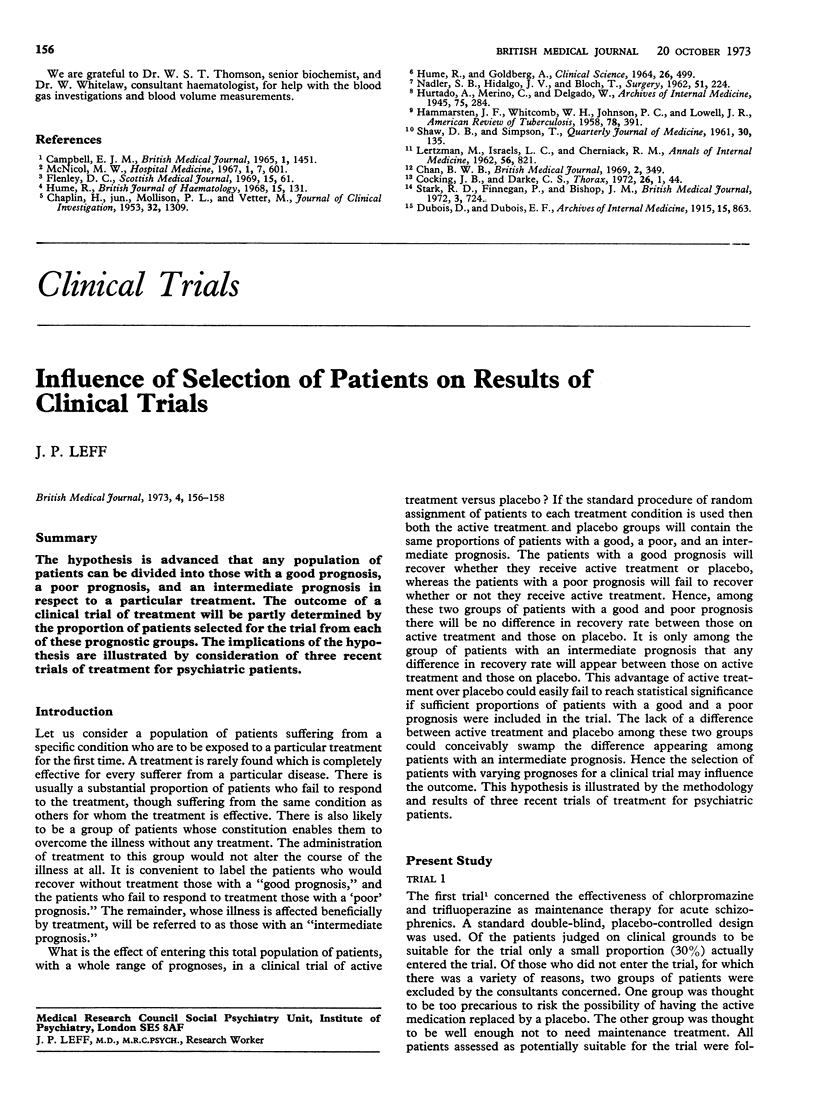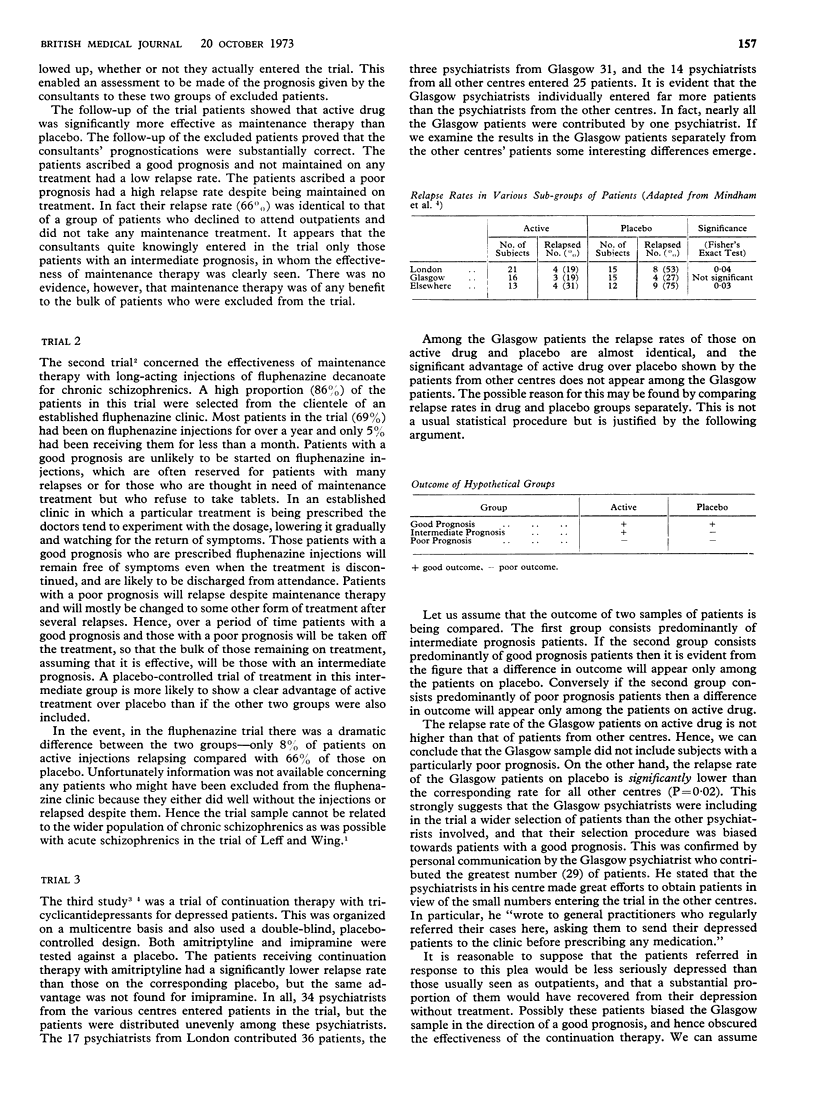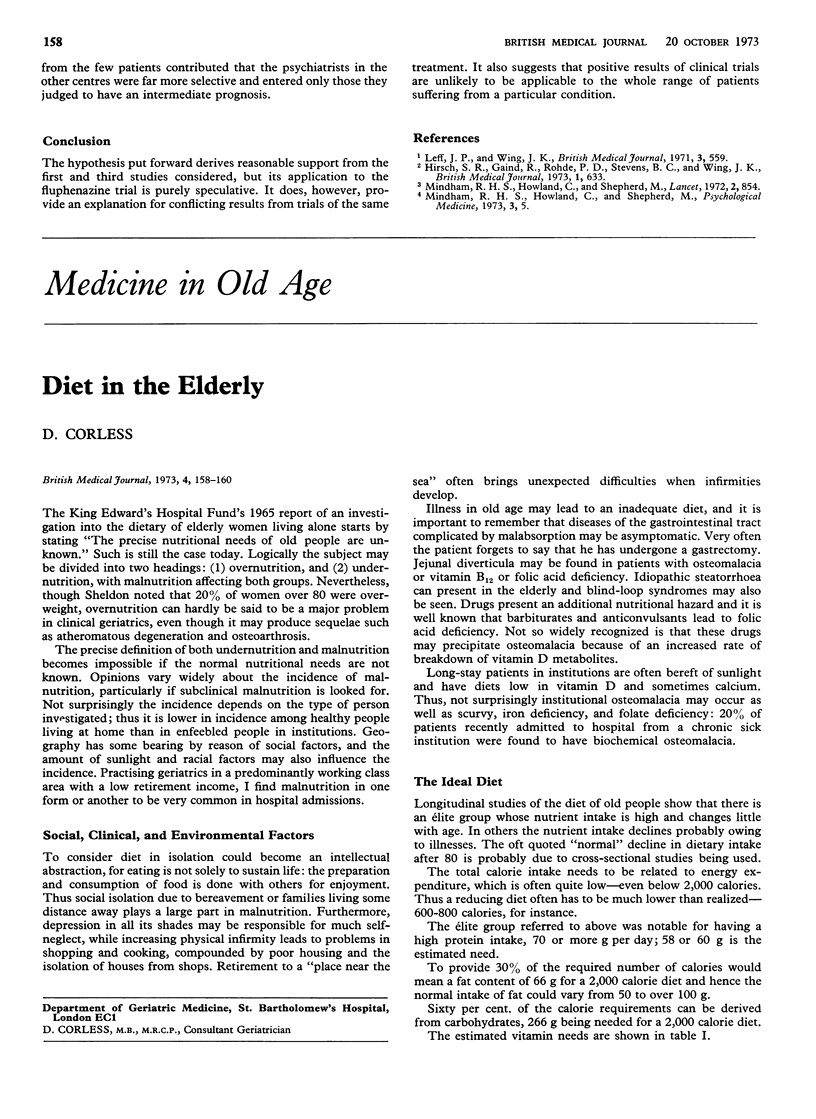Abstract
The hypothesis is advanced that any population of patients can be divided into those with a good prognosis, a poor prognosis, and an intermediate prognosis in respect to a particular treatment. The outcome of a clinical trial of treatment will be partly determined by the proportion of patients selected for the trial from each of these prognostic groups. The implications of the hypothesis are illustrated by consideration of three recent trials of treatment for psychiatric patients.
Full text
PDF


Selected References
These references are in PubMed. This may not be the complete list of references from this article.
- Hirsch S. R., Gaind R., Rohde P. D., Stevens B. C., Wing J. K. Outpatient maintenance of chronic schizophrenic patients with long-acting fluphenazine: double-blind placebo trial. Report to the Medical Research Council Committee on Clinical Trials in Psychiatry. Br Med J. 1973 Mar 17;1(5854):633–637. doi: 10.1136/bmj.1.5854.633. [DOI] [PMC free article] [PubMed] [Google Scholar]
- Mindham R. H., Howland C., Shepherd M. An evaluation of continuation therapy with tricyclic antidepressants in depressive illness. Psychol Med. 1973 Feb;3(1):5–17. doi: 10.1017/s0033291700046304. [DOI] [PubMed] [Google Scholar]
- Mindham R. H., Howland C., Shepherd M. Continuation therapy with tricyclic antidepressants in depressive illness. Lancet. 1972 Oct 21;2(7782):854–855. doi: 10.1016/s0140-6736(72)92214-3. [DOI] [PubMed] [Google Scholar]


